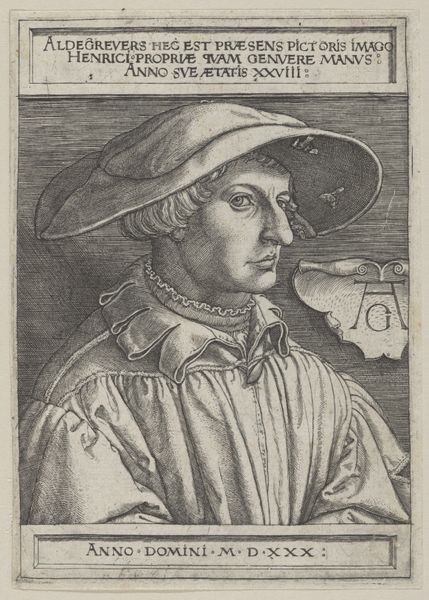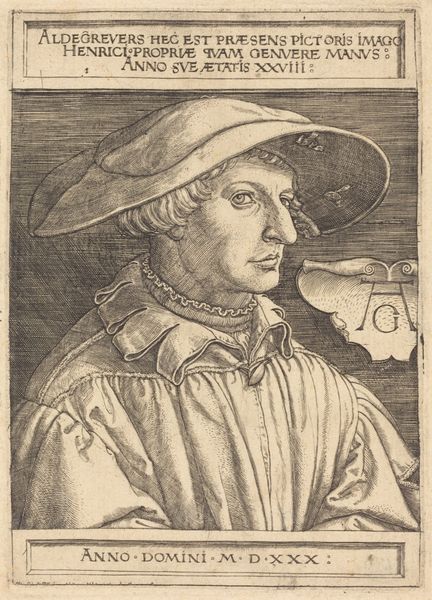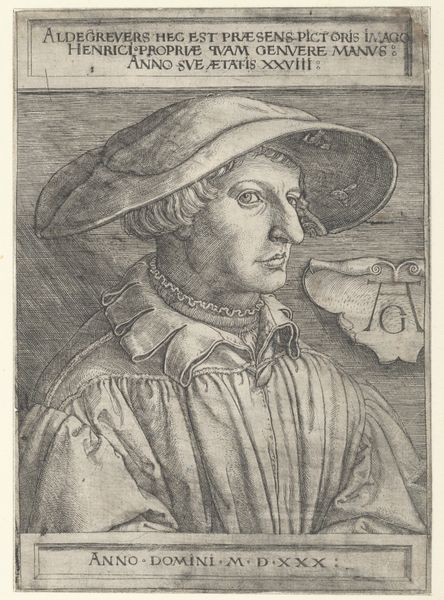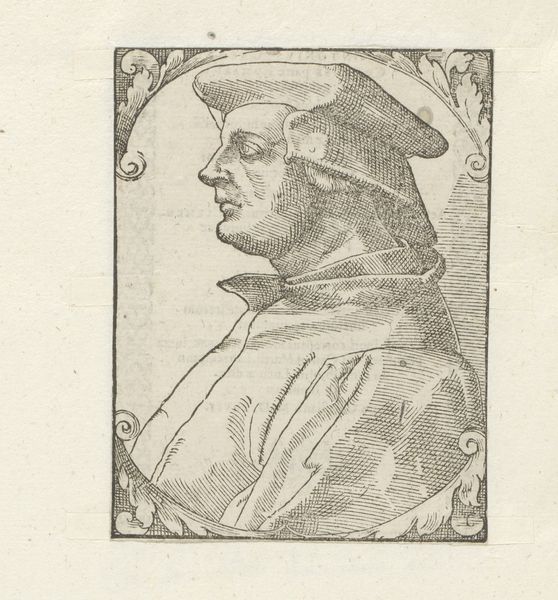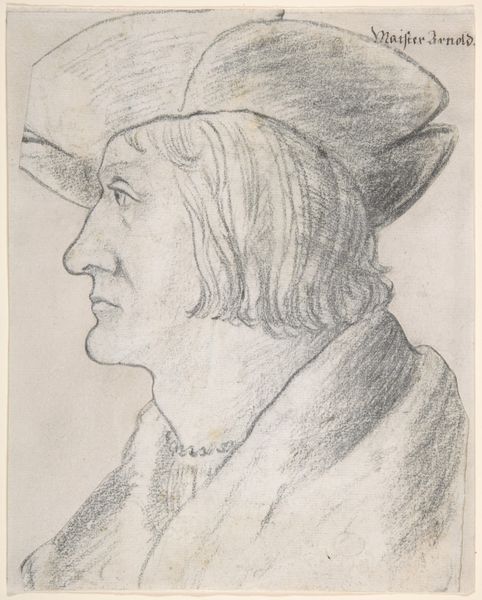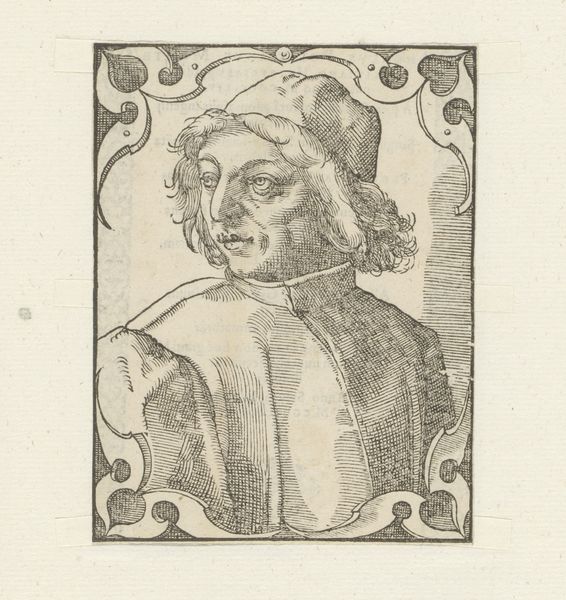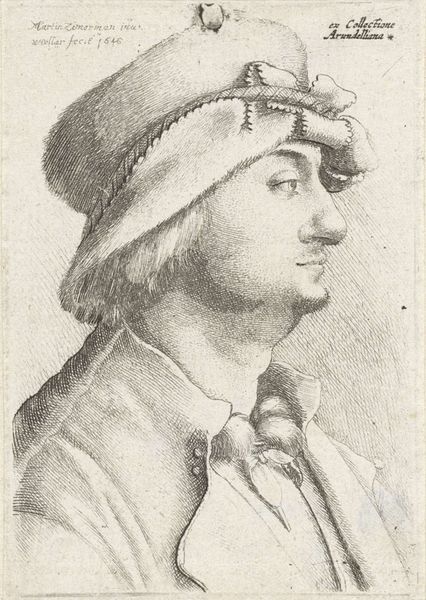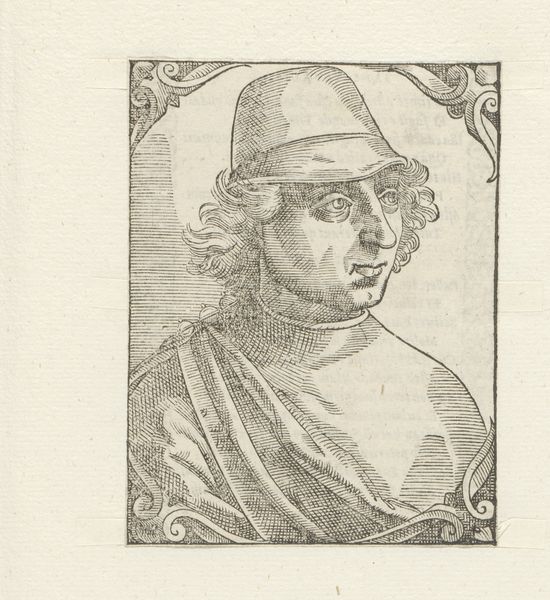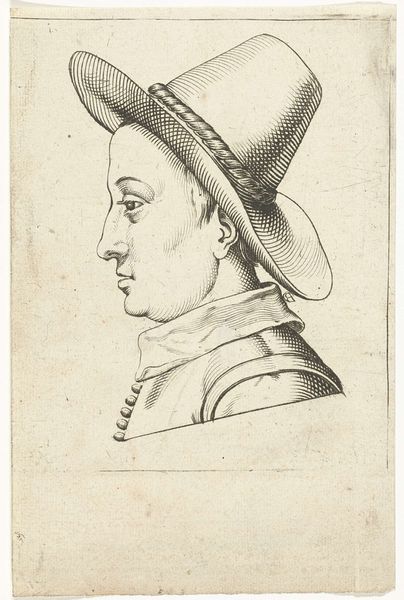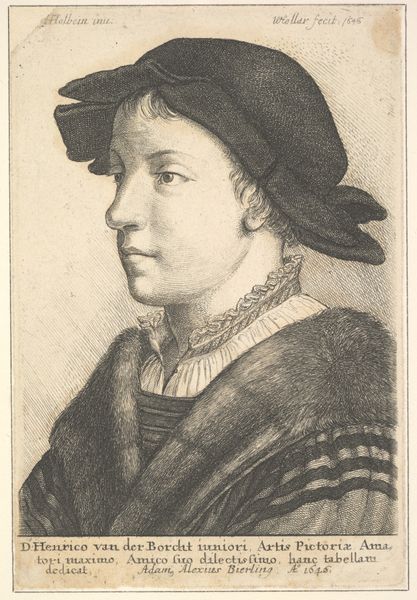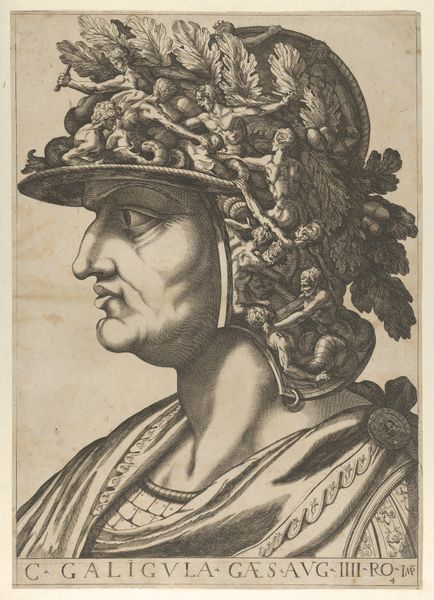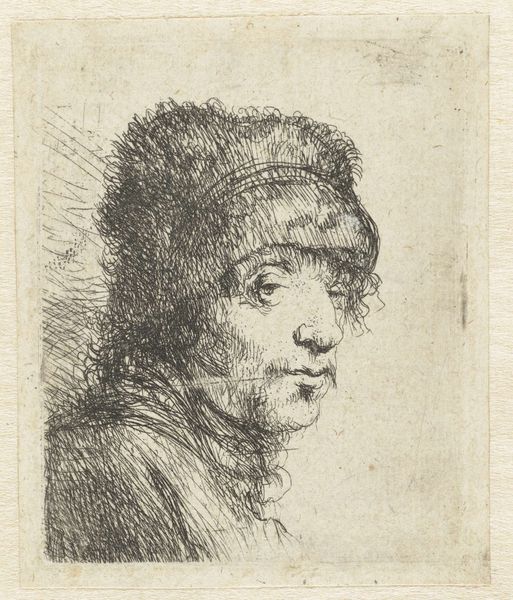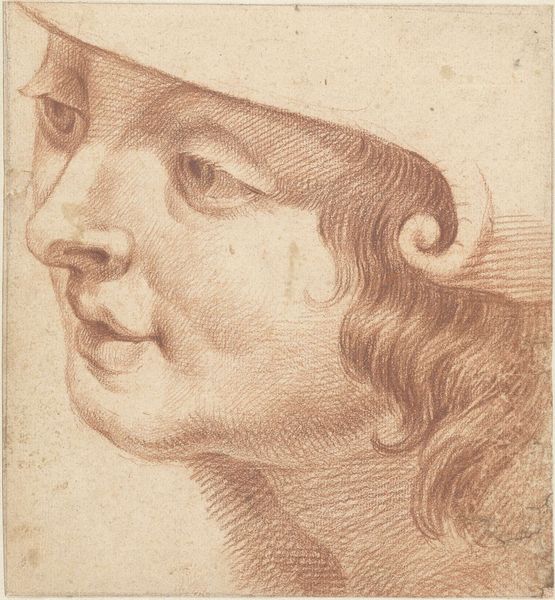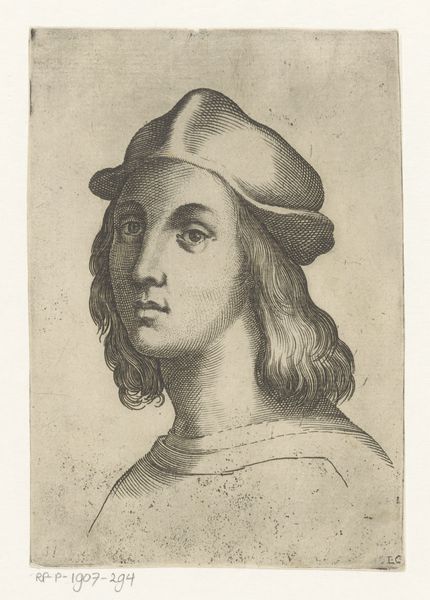
Head of young man wearing hat in profile to right 1648
0:00
0:00
drawing, print, engraving
#
portrait
#
drawing
#
baroque
#
head
# print
#
men
#
portrait drawing
#
engraving
Dimensions: Sheet: 2 5/8 × 1 13/16 in. (6.6 × 4.6 cm) cut mostly on platemark, bottom corners are clipped
Copyright: Public Domain
Curator: Here we have Wenceslaus Hollar’s 1648 engraving, "Head of young man wearing hat in profile to right," currently residing at The Metropolitan Museum of Art. Editor: It’s struck by how much the details create such a striking character despite the monochromatic limitations; it gives such weight to the human gaze. Curator: Indeed, and it is also worth considering the historical context. The work, while an engraving, is "after Holbein," indicating that this may not even be someone Hollar necessarily encountered. Instead, we should interpret Hollar’s creation of it in light of printmaking’s democratizing potential: images and artistic styles could be replicated and distributed. This extended an artist's or patron’s reach significantly, influencing tastes and perhaps also constructing identities in Baroque society. Editor: What really gets me, and I agree the social impact is important, but the way the light glances off the brim of the cap, contrasted with the densely shadowed neck—such attention to contrasting surfaces transforms the figure into a kind of sculptural study, don’t you think? The linear hatching defines his form beautifully. Curator: In a time marked by the rise of individualism but also stringent social hierarchies, the hat itself would denote particular social standing. Was the intention here to elevate or merely document this ‘young man’? Also, the profile view—why this angle and what connotations does that bring to the portrayal of power, youth, and beauty, particularly for the period? Editor: Oh absolutely, I agree on all of that. It’s compelling to consider these engravings not only for what they visually convey but also for their circulation dynamics, because by engaging in replication of Holbein, Hollar is in the same instance, performing a service, providing knowledge, but also shaping an appreciation for earlier artwork. And, I admit, there's something really marvelous about how timeless it is, even now, with its incredible depth of form! Curator: And that timelessness likely has to do with art institutions continuing to uphold the work’s presence in their collections. Well, there’s always more to consider… Editor: Always! But it's about time to conclude, and this image will stay with me; that much I am certain.
Comments
No comments
Be the first to comment and join the conversation on the ultimate creative platform.
